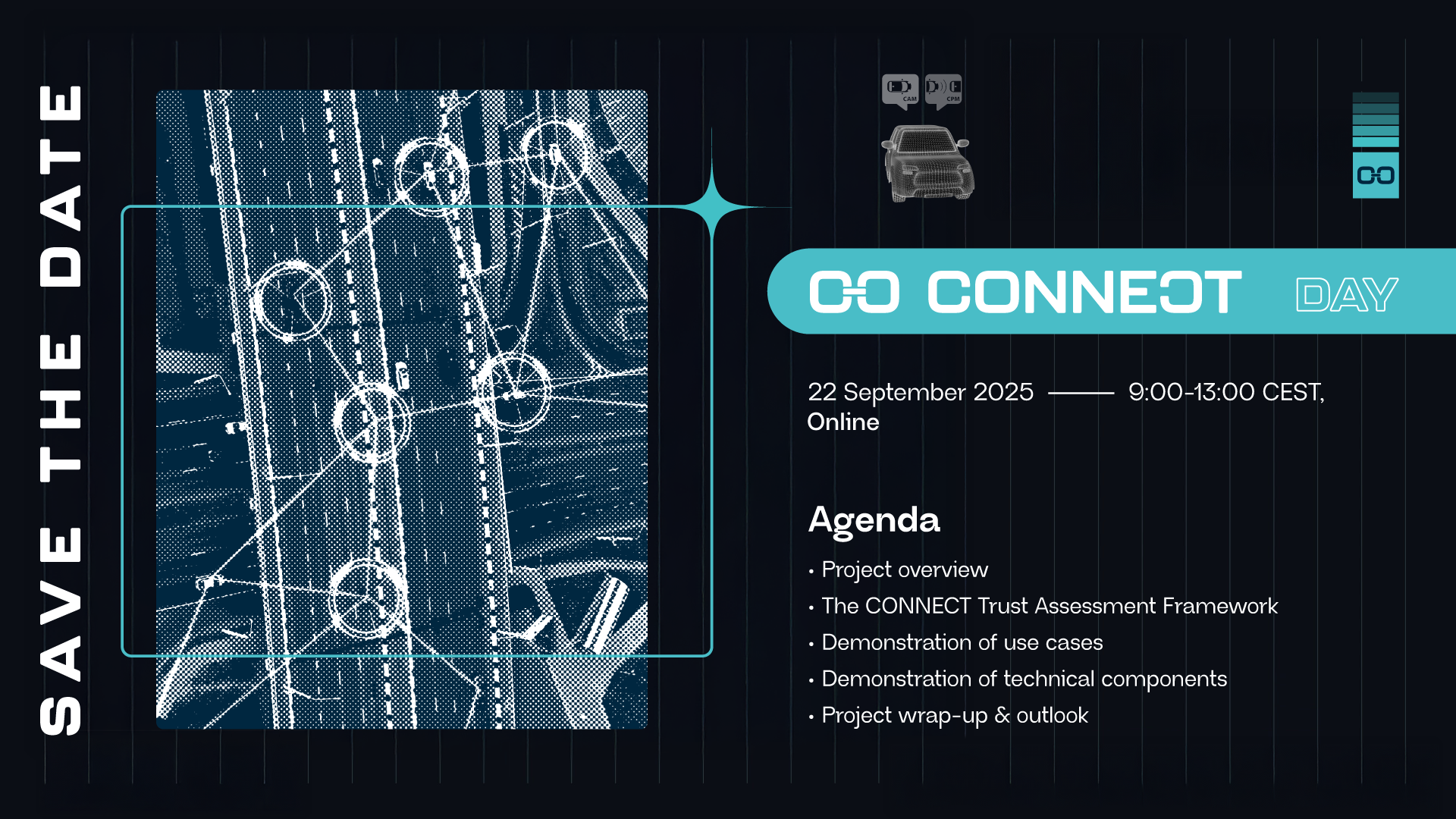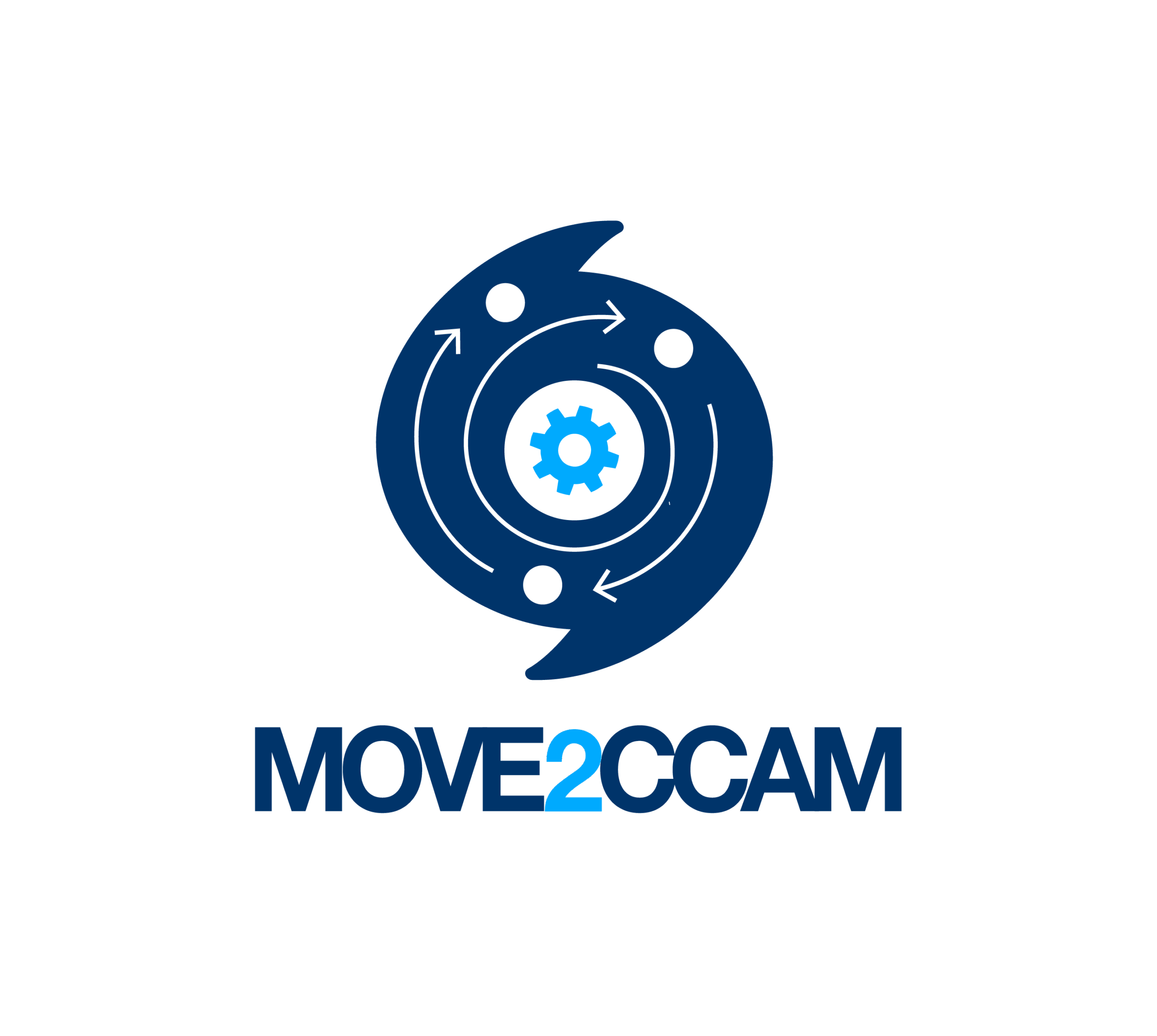#TRA2024 and CCAM Future in transport research
TRA 2024 just closed, and we can confirm it was a fantastic edition, especially for CCAM research. Many sessions covered the topic, and many announcements were made.
If you were unable to attend, below is a recap of what happened, starting from the beginning.
On Monday, 15 April, our cluster leaders: Margriet van Schijndel and Peter Urban hosted a special session on user acceptance and what is key to a successful transition to the future European mobility system. During the session, the need for cooperation between industry and public authorities was underlined to ensure that the new mobility services actually can be sustainable long-term and scaled. The speakers also agreed that the policies should be evidence-based and data-driven.
On the 2nd day of TRA 2024, our member, ALICE, organised and hosted the special session “How can Large-scale Demonstration Accelerate CCAM Adoption in European Logistic Chains”. Through the panel discussions, it was clearly agreed by everyone that logistics is a crucial aspect of CCAM. CCAM is not solely focused on passenger vehicles or public transport, it encompasses much more.
To gain insights and to approach market deployment, large-scale demonstration projects are required. These projects can help reduce risk for private sector investments. They are also crucial for building confidence and generating business cases.
On Day 3, multi-connectivity, a potential solution for CCAM in rural areas, was a key topic of discussion in session “4.4 Infrastructure Support for CCAM (Cooperative Connected Automated Mobility)—Digital Infrastructure, Connectivity, Remote Management.” It emphasised the importance of OEMs, road operators, and telecoms working together to establish a joint roadmap. However, it was acknowledged that a systemic mechanism is currently missing.
Thanks to the PoDIUM project, AUGMENTED CCAM project and Hi-Drive project, the session also delved into the potential of a taxonomy to measure the impact of physical and digital infrastructure (PDI) support on operational design domain (ODD) extension.
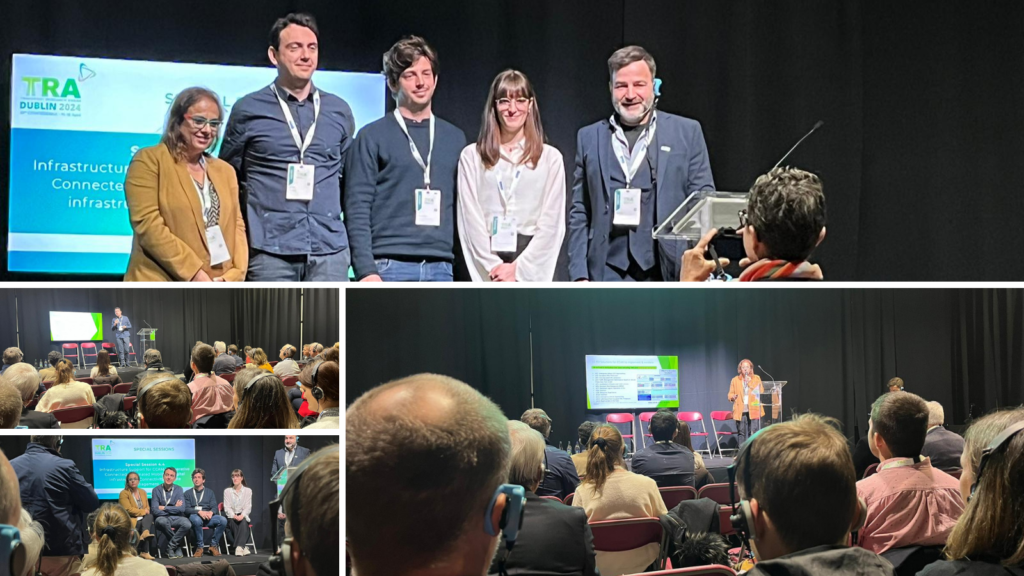
Additionally, 147 research questions related to remote management were identified, showcasing the collaborative effort of the experts from BASt Germany. The German version of the report listing all the questions is available here. The EN version will be ready soon.
During the lunchtime session at the European Commission booth, the DG RTD announced the launch of a Staff Working Document on CCAM in Europe. This document highlights 10 European achievements that are helping to bring Europe closer to deploying connected and automated mobility (CCAM). One of these achievements is the CCAM Partnership, which plays a crucial role in addressing concerns and ensuring a smooth and responsible transition to innovative mobility solutions.
The Staff Working Document presents a unified European vision that enables a progressive and seamless transition to CCAM, from research to widespread deployment, towards a multimodal, shared, sustainable, inclusive, affordable, and safe transport sector. The document highlights several R&I success stories, demonstrating the impact of EU investment in CCAM, with a total of €1 billion allocated for the duration of Horizon Europe.
To download the document, please use the following link: https://bit.ly/3W28tGL
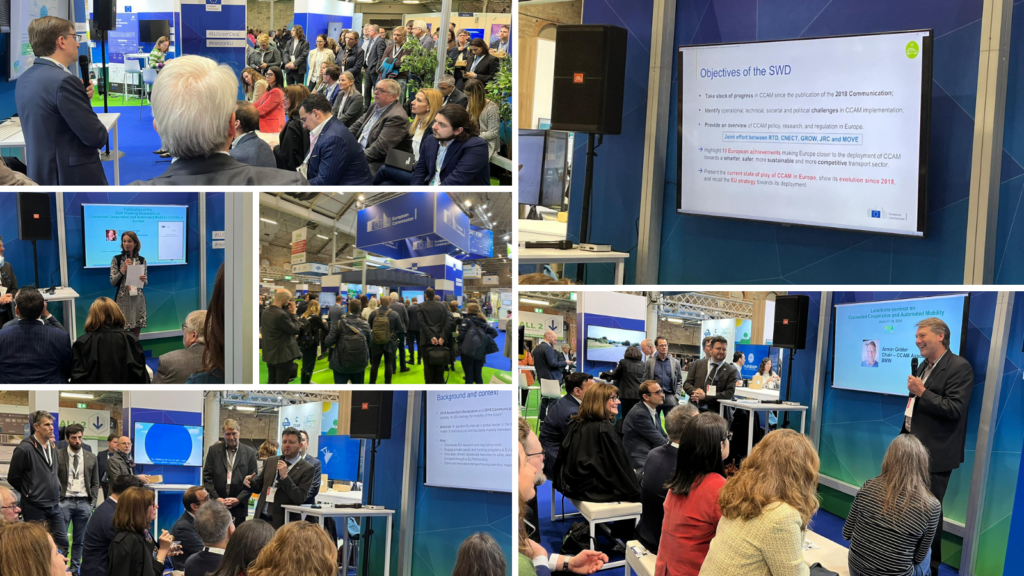
In the afternoon, during the special session on Best Practices and Synergies to Deploy EU Research and Innovation, the discussion was centred on how to put research results into the market sooner and how to break down the barriers between different transport modes and enabling technologies. The CCAM Partnership mentioned their use case approach, which was recently established with the ERTRAC (https://www.ccam.eu/must-have-document-update-of-ertrac-ccam-roadmap-on-use-cases/).
In this approach, CCAM use cases are categorised based on their technological maturity. Not everything will be deployed at once, and the focus for large-scale demonstrations and deployment should be on innovation use cases that are closer to the market.
In CCAM, it is important to prioritise safety before deployment and to be patient and persistent. CCAM works closely with 2Zero and recently with AI, Data and Robotics partnership and the Chips JU. The collaboration with digital technologies was emphasised as an excellent example to follow. The discussion concluded with the need to coordinate better funding opportunities for research with those for deployment, which was the main wish for the next Framework Programme. Synergies with other modes of transport are essential, too, for deploying EU innovations.
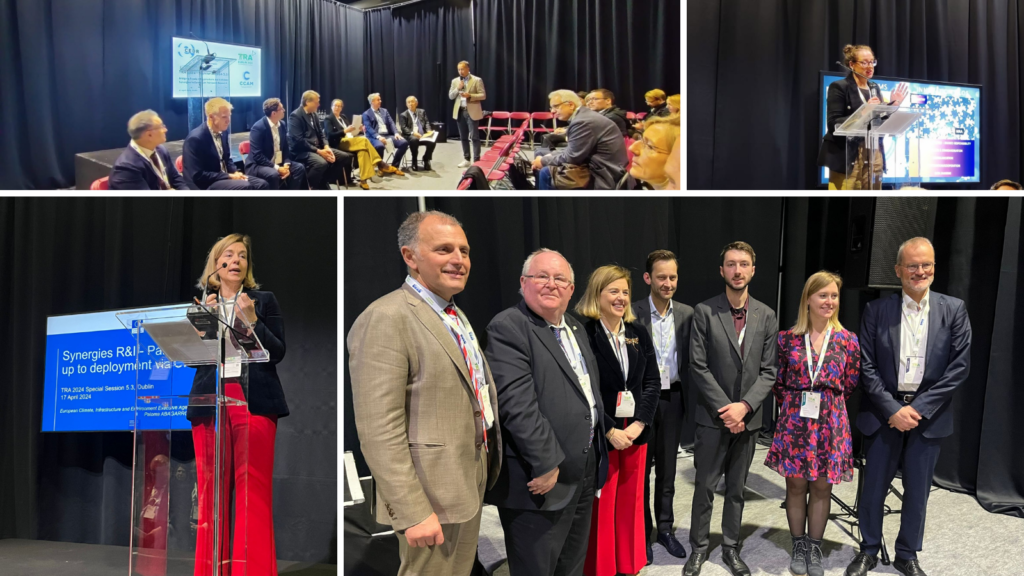
At the same time, the session “Bridging Roads Infrastructure and Vehicles: Synergies in European Transport Research”, co-organised by the CCAM Partnership and Conference of European Directors of Roads (CEDR), was held. It focused on exploring the interplay between road infrastructure research and vehicle-related research. The main objective was to discuss the synergies in European transport research that aim to improve safety, digitalisation, and automation.
The following key themes were discussed during the session:
- Safety and Resilience: The speakers emphasised the need for infrastructure safety improvements, resilience in critical situations, and proactive governance to ensure the safety benefits of CCAM.
- Digitalisation and Automation: Discussions revolved around the importance of digital infrastructure, data quality frameworks, and the integration of automation technologies to enhance traffic flow management and energy efficiency.
- Collaboration and Standardisation: Collaboration among stakeholders, standardisation efforts, and national strategies were highlighted as crucial for the successful deployment of CCAM and the harmonisation of traffic rules across borders.
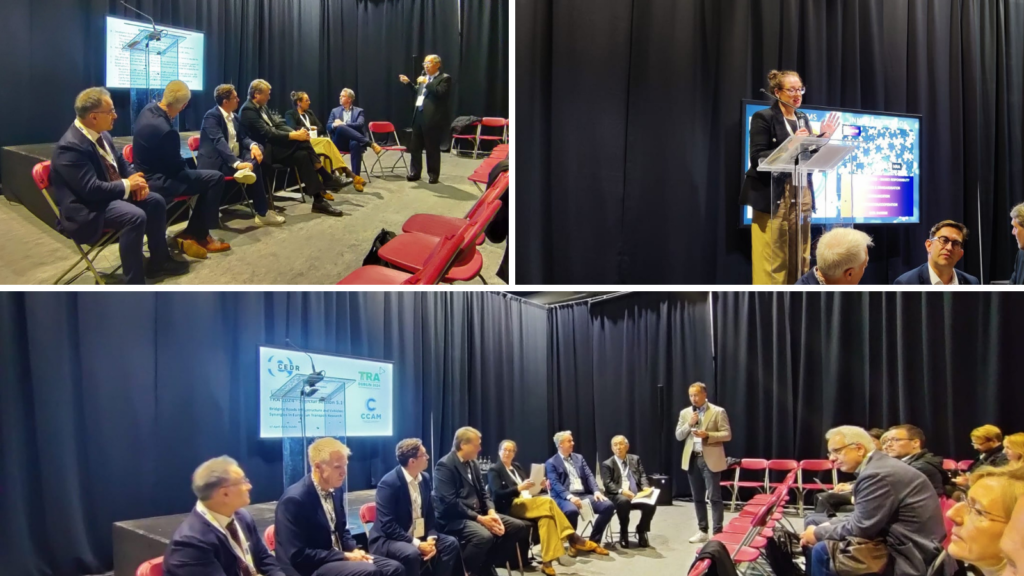
The first CCAM session of day 4 of #TRA2024, titled “Success Factors and Added Value of International Cooperation in the Context of Inclusive CCAM Services – Learnings from Large-scale Demonstration Projects in the EU & Japan”, stressed the importance of international cooperation in CCAM research while maintaining industry competitiveness. The session identified several areas for joint work, including standardisation, validation, AI and cybersecurity, and raising societal awareness. The projects FAME (Connected Automated Driving in Europe), ULTIMO, SHOW and Cool4 served as compelling examples of the benefits of such cooperation and what can be achieved through it.
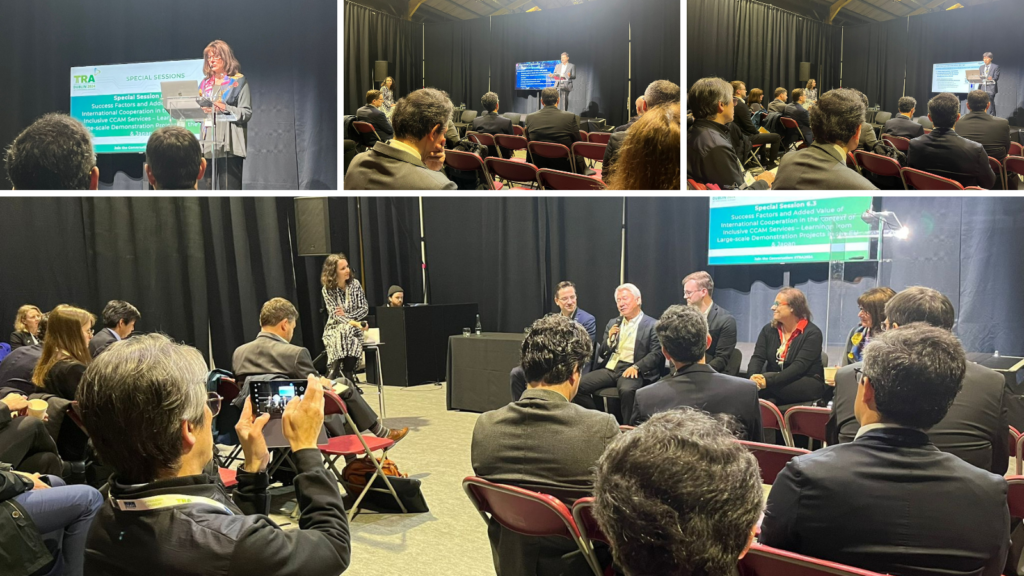
The plenary on Collaborative Digitalisation focused on leveraging digitalisation in transport towards environmental sustainability. Representative of the National Highways in the UK mentioned their very recent Digital Road plan – https://nationalhighways.co.uk/our-work/digital-data-and-technology/digital-roads/
Key topics covered in this plenary:
- Data and the insights that it can provide – data products
- AI that helps with big amounts of data
- Data analytics
- Data governance that allows to innovate
- End-to-end connectivity to transfer data
- Security
- Impact on workforce
- Predictive maintenance and safety
- Passenger safety
- High costs related to digitalisation
- Digital divide
The hope for the future is that digitalisation will, among other things, facilitate the integration of different transport modes for seamless mobility.
Signe Ratso from DG RTD from the European Commission underlined the role of partnerships and their collaboration together. She brought up three examples from the CCAM Partnership:
• Joint topic with 2Zero Partnership and Cities Mission to demonstrate new road transport solutions in cities
• Cooperation with Chips JU and 2Zero Partnership on software-defined vehicle of the future
• Good work of the CCAM States Representatives Group to align CCAM research on European and national level.
“We need to continue to invest in this area, take trustworthy human-centric approach and provide benefits for future generations” – concluded Signe.
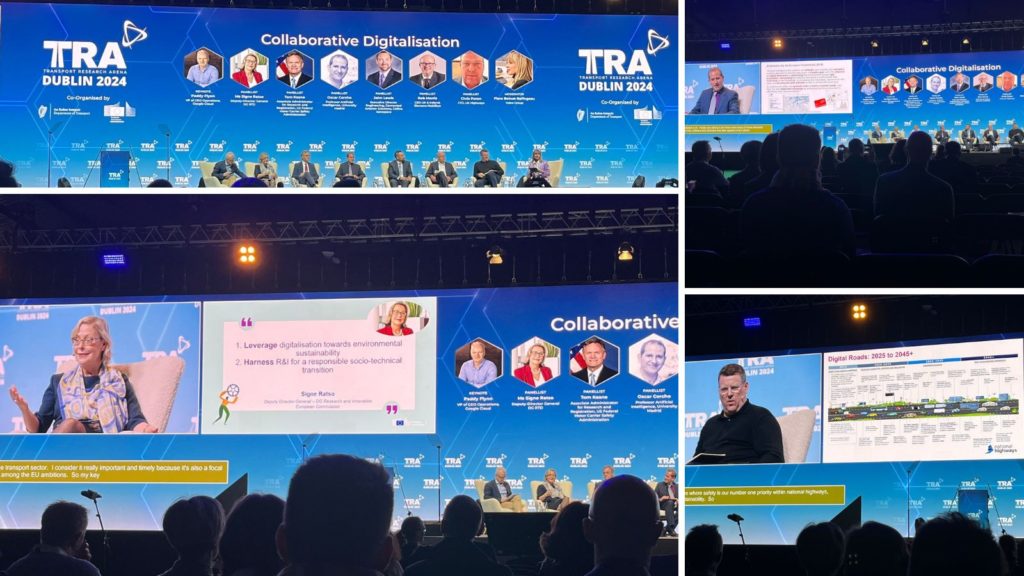
The strategic session “CCAM: what next for new mobility services?” emphasised the co-evolution of technology and social innovation, cross-sector collaboration, governance issues, security and privacy considerations to support new mobility services.
Herald Ruijters from the European Commission DG MOVE underlined safety as CCAM’s main objective. He then mentioned CCAM’s societal benefits as crucial to investigate. He also addressed the availability of data for multimodality and the initiative of the European Mobility Data Space.
The CCAM SRG Chairwoman, Tereza Cizkova, highlighted three important points for CCAM from a national perspective: regulation, innovation, cooperation.
The CCAM Association Chairman Armin Gräter mentioned that the safety validation approach is the key success factor for European CCAM actors. He also highlighted cooperation with Member States, road authorities, and operators as unique in the world.
To break the silos and take the door-to-door perspective, SESAR 3 Joint Undertaking and Europe’s Rail Joint Undertaking also joined the debate. There are a lot of challenges in common, and all transport, not only road, will become digital.
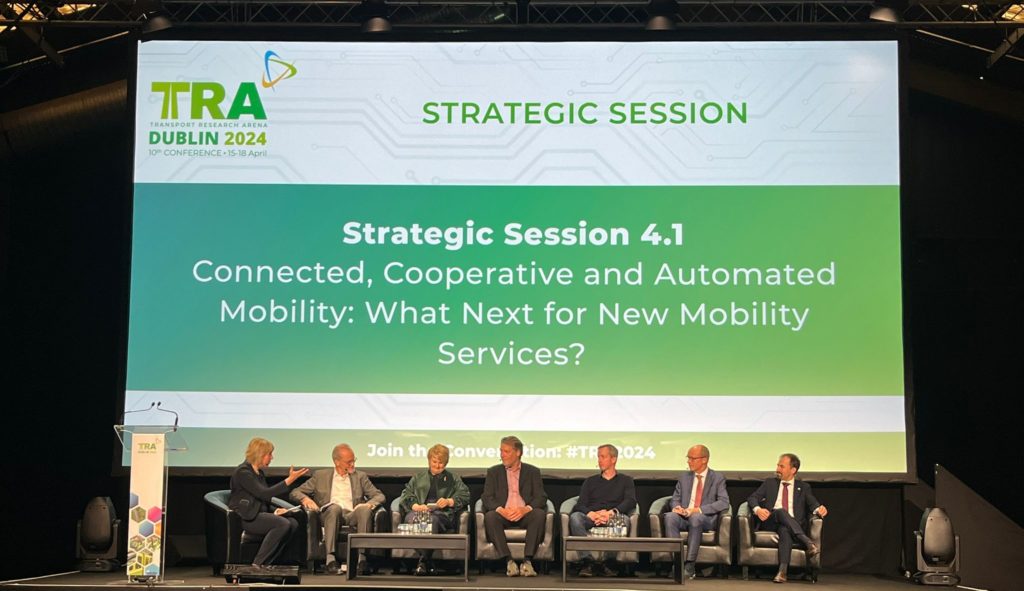
To conclude, first and foremost, we would like to express our gratitude to all the Irish stakeholders who were involved in the organisation and hosting of the #TRA2024 conference. The conference was truly amazing and provided valuable insights about the future of mobility and the state of transport research.
We would also like to extend our thanks to all the CCAM colleagues who contributed to the sessions during the last week. Finally, thank you to all the visitors who stopped by our joint stand with ERTRAC and the 2Zero Partnership.
See you all in 2 years in Budapest. Save the date: 18-21 May 2026.
